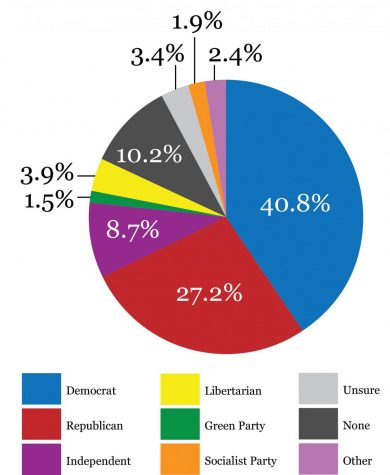Midterm Elections Shift Power in Washington
This year’s battle for Congress in the 2018 midterm elections served as a gauge of the state of political affairs in the United States. According to The New York Times, an estimated 113 million Americans voted during this year’s midterms. For the first time since 1966, over 48% of eligible voters cast their ballots. At a rally before election day, Trump said, “I am not on the ticket, but I am on the ticket, because this is also a referendum about me.”
Prior to the midterm elections, the Republican Party held the majority in both houses of Congress. However, Democrats won a majority in the House of Representatives for the first time since 2010, while Republicans maintained their majority in the Senate. Republicans currently hold 51 Senate seats and Democrats hold 47, but the election results for two seats are not yet decided. While results are not yet confirmed, some polls suggest that they are likely to go to the GOP.
Several close votes for Senate seats instilled Democrats with hope that they may take back the Senate as well. For example, Democratic Candidate Beto O’Rourke in Texas lost to Ted Cruz, the incumbent, by less than three percentage points in the final tally. However, Democratic candidates lost in a few key states, ultimately securing a Republican majority once again. Despite Democrats seizing control of the House, President Donald Trump called the results “a great success.”
The midterm elections brought landmark victories for many communities in the United States. Jahana Hayes (D-CT) became Connecticut’s first African-American woman to serve in Congress, and Jared Polis (D-CO) became the first openly gay man to be elected governor. Following his victory, Polis said, “For the LGBTQ pioneers…who endured so much hardship and hurt to make it possible for so many of us, myself included, to live and to love openly and proudly, and to the people in this room, I want to say I am profoundly grateful for all the work we’ve done to overcome.”
Sharice Davids (D-KS), a lesbian and a member of the Ho-Chunk Nation, and Deb Haaland (D-NM), member of the Laguna Pueblo tribe, became the first two Native American women to serve in Congress. Meanwhile, Ilhan Omar (D-MN) and Rashida Tlaib (D-MI) became the first Muslim women Representatives.
The changes brought by the midterm elections, both in representation and party balance, will shift the tide of American politics when elected officials begin their terms this coming January. Rick Scott (R-FL), who won Florida’s Senate election, said, “I’m going to D.C. to get something done.”






